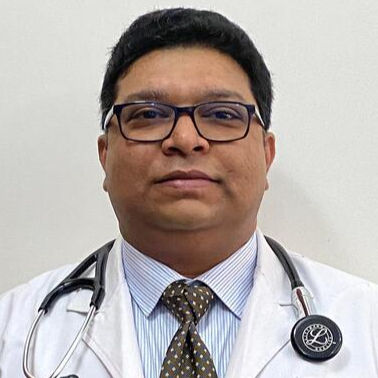Understanding the Causes of GERD
Learn about the causes of GERD, from weak LES muscles to dietary triggers and stress. Discover how to manage acid reflux with diet, lifestyle changes, and treatment options.

Written by Dr. J T Hema Pratima
Reviewed by Dr. Dhankecha Mayank Dineshbhai MBBS
Last updated on 22nd Aug, 2025

Gastroesophageal Reflux Disease (GERD) is a common digestive disorder that affects millions of people worldwide. If you frequently experience heartburn, regurgitation, or discomfort after eating, you might be dealing with GERD. Understanding the causes of GERD can help you manage the condition better and improve your quality of life.
What is GERD?
GERD occurs when stomach acid frequently flows back into the tube connecting your mouth and stomach (oesophagus). This backwash (acid reflux) can irritate the lining of your oesophagus, leading to symptoms like heartburn, chest pain, and difficulty swallowing. While occasional acid reflux is normal, frequent episodes (more than twice a week) may indicate GERD.
Common Causes of GERD
Several factors contribute to GERD. Some are related to lifestyle, while others are due to physical conditions. Let’s explore them in detail:
1. Weak Lower Oesophageal Sphincter (LES)
- The LES is a ring of muscle at the bottom of the oesophagus that acts like a valve, opening to let food into the stomach and closing to prevent acid from flowing back. If the LES weakens or relaxes abnormally, stomach acid can escape into the oesophagus, causing GERD.
2. Hiatal Hernia
- A hiatal hernia occurs when the upper part of the stomach bulges through the diaphragm into the chest cavity. This condition can weaken the LES, making it easier for acid to reflux.
3. Dietary Triggers
Certain foods and beverages can relax the LES or increase stomach acid production, worsening GERD symptoms. Common triggers include:
- Spicy, fatty, or fried foods
- Citrus fruits and tomatoes
- Chocolate, coffee, and carbonated drinks
- Alcohol and peppermint
4. Obesity
- Excess weight, especially around the abdomen, puts pressure on the stomach, forcing acid back into the oesophagus. Losing weight can significantly reduce GERD symptoms.
5. Pregnancy
- Hormonal changes and increased abdominal pressure during pregnancy can relax the LES, leading to acid reflux. Symptoms usually improve after delivery.
6. Smoking
- Smoking weakens the LES and reduces saliva production, which helps neutralise stomach acid. Quitting smoking can improve GERD symptoms and overall health.
7. Certain Medications
- Some medications, including pain relievers (ibuprofen, aspirin), blood pressure drugs, and muscle relaxants, can contribute to GERD by relaxing the LES or irritating the oesophagus.
Consult a Top General Physician for the best advice
8. Eating Habits
- Eating large meals or lying down immediately after eating can trigger reflux. Eating smaller, more frequent meals and avoiding late-night snacks can help.
9. Stress and Anxiety
While stress doesn’t directly cause GERD, it can worsen symptoms by increasing stomach acid production and making you more sensitive to discomfort.
How GERD Affects Your Health
If left untreated, GERD can lead to complications such as:
- Esophagitis: Inflammation of the oesophagus, causing pain and difficulty swallowing.
- Oesophageal Strictures: Narrowing of the oesophagus due to scar tissue.
- Barrett’s Oesophagus: A precancerous condition where the oesophageal lining changes, increasing the risk of oesophageal cancer.
- Respiratory Problems: Acid reflux can irritate the throat, leading to chronic cough, asthma, or pneumonia.
Tips to Manage GERD
While GERD can be uncomfortable, simple lifestyle changes can help manage symptoms:
- Dietary Adjustments
- Avoid trigger foods (spicy, fatty, acidic).
- Eat smaller, more frequent meals.
- Avoid eating 2-3 hours before bedtime.
Lifestyle Changes
- Maintain a healthy weight.
- Elevate the head of your bed by 6-8 inches.
- Quit smoking and limit alcohol.
- Wear loose-fitting clothing to reduce abdominal pressure.
Medications
- Antacids: Provide quick relief by neutralising stomach acid.
- H2 Blockers (e.g., ranitidine): Reduce acid production.
- Proton Pump Inhibitors (e.g., omeprazole): Block acid production for long-term relief.
If symptoms persist despite these changes, consult a doctor. Severe cases may require medical procedures to strengthen the LES.
When to See a Doctor
Seek medical advice if you experience:
- Frequent heartburn (more than twice a week).
- Difficulty swallowing or persistent nausea.
- Unexplained weight loss.
- Chest pain (to rule out heart conditions).
If you need expert guidance, you can book a consultation with a gastroenterologist through Apollo 24|7. Early diagnosis and treatment can prevent complications and improve your quality of life.
Conclusion
GERD is a manageable condition once you understand its causes and triggers. By making mindful lifestyle changes and seeking medical help when needed, you can reduce discomfort and protect your long-term health.
Consult a Top General Physician for the best advice
Consult a Top General Physician for the best advice

Dr. Chethan T L
General Physician/ Internal Medicine Specialist
5 Years • MBBS, MD, DNB (General Medicine)
Bengaluru
Apollo Medical Center, Marathahalli, Bengaluru
Dr. Kanupriya Mishra
General Physician
30 Years • MBBS(GENERAL PHYSICIAN)
Bengaluru
Apollo Clinic, Sarjapur Road, Bengaluru

Dr. Dayanashre N
General Physician
3 Years • MBBS
Bengaluru
PRESTIGE SHANTHINIKETAN - SOCIETY CLINIC, Bengaluru

Dr. Ahmer Alam
General Physician/ Internal Medicine Specialist
11 Years • MBBS,MD
Hyderabad
Alliance Specialist Clinic, Hyderabad

Dr. Gunashree V L
General Physician/ Internal Medicine Specialist
3 Years • MBBS
Bengaluru
Apollo Clinic, JP nagar, Bengaluru
Consult a Top General Physician for the best advice

Dr. Chethan T L
General Physician/ Internal Medicine Specialist
5 Years • MBBS, MD, DNB (General Medicine)
Bengaluru
Apollo Medical Center, Marathahalli, Bengaluru
Dr. Kanupriya Mishra
General Physician
30 Years • MBBS(GENERAL PHYSICIAN)
Bengaluru
Apollo Clinic, Sarjapur Road, Bengaluru

Dr. Dayanashre N
General Physician
3 Years • MBBS
Bengaluru
PRESTIGE SHANTHINIKETAN - SOCIETY CLINIC, Bengaluru

Dr. Ahmer Alam
General Physician/ Internal Medicine Specialist
11 Years • MBBS,MD
Hyderabad
Alliance Specialist Clinic, Hyderabad

Dr. Gunashree V L
General Physician/ Internal Medicine Specialist
3 Years • MBBS
Bengaluru
Apollo Clinic, JP nagar, Bengaluru




